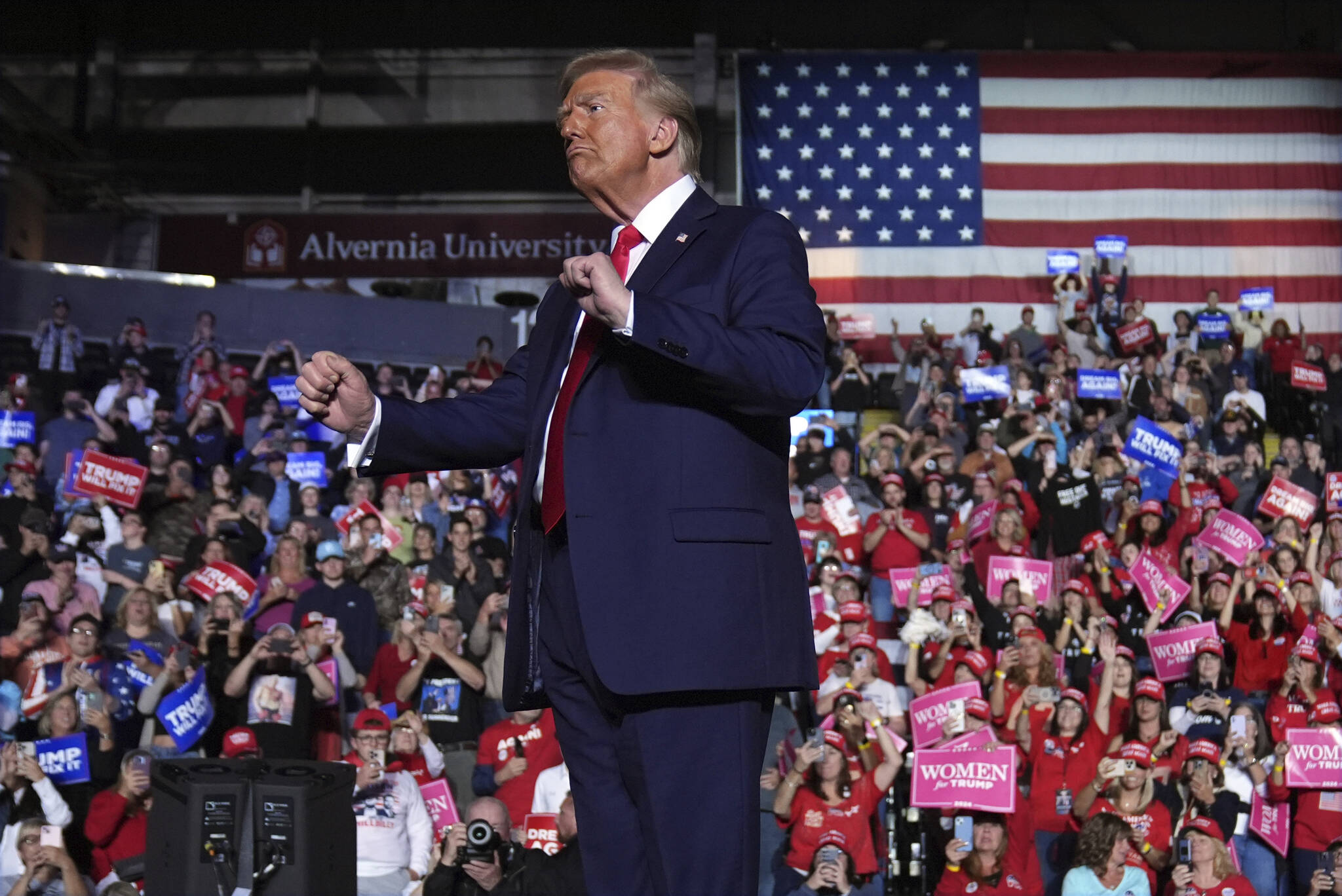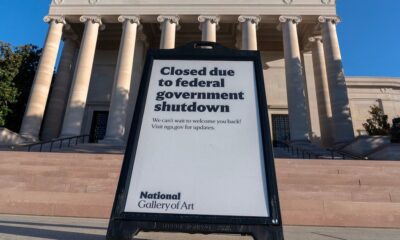Politics
AI’s Rising Threat to Democracy: A Call for Urgent Action

In January 2024, a robocall featuring a hyper-realistic AI clone of President Joe Biden urged New Hampshire Democrats to “stay home” ahead of the state primary. This incident highlights the increasing threat of artificial intelligence (AI)-driven disinformation in political contexts, raising alarms about its potential to undermine democratic processes globally. Such AI-generated content, including deepfakes and synthetic voices, is becoming alarmingly easy to produce and nearly impossible to detect.
The implications of this technology extend well beyond mere pranks. If left unchecked, AI disinformation could erode public trust in political institutions, depress voter turnout, and destabilize democracies. For instance, during the 2024 campaign, Donald Trump’s team shared an AI-generated image of Taylor Swift endorsing him, a hoax that nonetheless gained significant traction online. Such instances are not isolated, as state-backed entities are increasingly employing deepfake technology in coordinated disinformation campaigns targeting democratic nations, according to the Knight First Amendment Institute.
Canada faces similar challenges, particularly following its recent 2025 federal election. The election took place without robust legal safeguards against AI-enabled disinformation, contrasting starkly with the European Union, which has enacted the AI Act. This legislation mandates clear labeling of AI-generated texts, images, and videos. In Canada, however, the reliance on voluntary codes of conduct and platform-based moderation has proven inconsistent, leaving the information ecosystem vulnerable to manipulation.
A September 2024 survey by the Pew Research Center revealed that 57 percent of Americans expressed significant concern about AI’s potential to generate fake election information. Canadian polls reflect similar apprehension among voters. Recent investigations uncovered deepfake videos mimicking news bulletins from reputable outlets like CBC and CTV, disseminating false information ahead of the Canadian elections.
To address these pressing concerns, experts suggest several key actions Canada should implement:
1. **Content-labeling laws**: Adopt regulations similar to those in the European Union, mandating labels for AI-generated political media to ensure transparency.
2. **Detection tools**: Invest in research and development for technologies that can identify and flag deepfakes. Some Canadian researchers are already working on this, and their findings should be integrated into various platforms, newsrooms, and fact-checking systems.
3. **Media literacy programs**: Expand initiatives aimed at teaching the public about AI literacy and how to identify deepfakes effectively.
4. **Election safeguards**: Equip Elections Canada with rapid-response protocols to combat AI-driven disinformation during election cycles.
5. **Platform accountability**: Implement measures holding social media platforms responsible for failing to act on verified deepfakes, requiring them to maintain transparent reporting on content removals and detection methods.
Trust in elected officials and democratic institutions is foundational to a functioning society. If citizens cannot trust the information they receive, the very fabric of civil society begins to unravel. While AI poses significant challenges, it also offers solutions. Researchers are developing digital watermarking schemes to trace manufactured content, and media outlets are utilizing real-time, machine-learning-driven fact-checking to combat misinformation.
The uncertainty surrounding Canada’s political landscape, particularly with its minority government, calls for immediate action. Proactive measures to modernize legislation and develop infrastructure are essential to ensure that democracy does not become another casualty of the AI era.
This article is a collaborative effort from experts in the field, including Abbas Yazdinejad, a postdoctoral research fellow at the University of Toronto, and Jude Kong, a professor at the same institution. Their insights underline the urgency of addressing AI’s impact on democratic processes before it is too late.
-

 World3 months ago
World3 months agoScientists Unearth Ancient Antarctic Ice to Unlock Climate Secrets
-

 Entertainment3 months ago
Entertainment3 months agoTrump and McCormick to Announce $70 Billion Energy Investments
-

 Science3 months ago
Science3 months agoFour Astronauts Return to Earth After International Space Station Mission
-

 Lifestyle3 months ago
Lifestyle3 months agoTransLink Launches Food Truck Program to Boost Revenue in Vancouver
-

 Technology2 months ago
Technology2 months agoApple Notes Enhances Functionality with Markdown Support in macOS 26
-

 Top Stories1 week ago
Top Stories1 week agoUrgent Update: Fatal Crash on Highway 99 Claims Life of Pitt Meadows Man
-

 Sports3 months ago
Sports3 months agoSearch Underway for Missing Hunter Amid Hokkaido Bear Emergency
-

 Politics2 months ago
Politics2 months agoUkrainian Tennis Star Elina Svitolina Faces Death Threats Online
-

 Technology3 months ago
Technology3 months agoFrosthaven Launches Early Access on July 31, 2025
-

 Politics3 months ago
Politics3 months agoCarney Engages First Nations Leaders at Development Law Summit
-

 Entertainment3 months ago
Entertainment3 months agoCalgary Theatre Troupe Revives Magic at Winnipeg Fringe Festival
-

 Politics1 week ago
Politics1 week agoShutdown Reflects Democratic Struggles Amid Economic Concerns





















